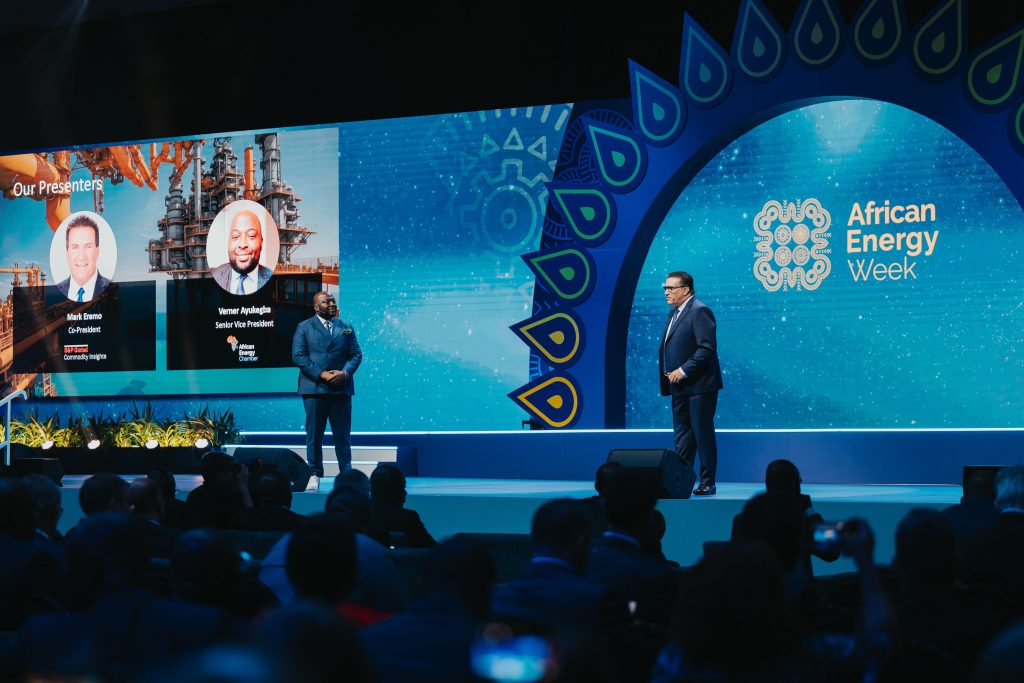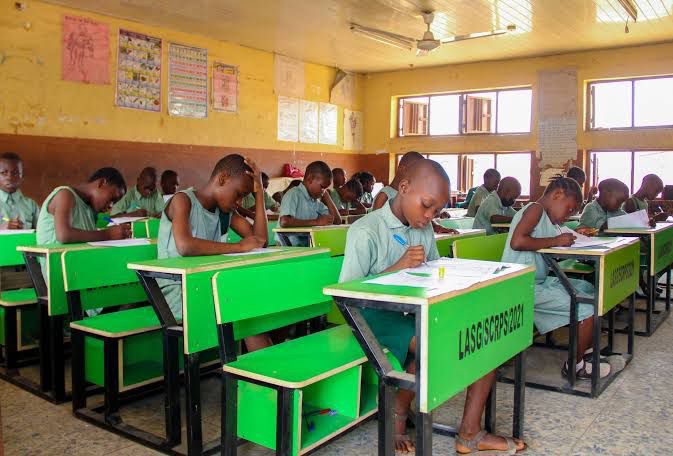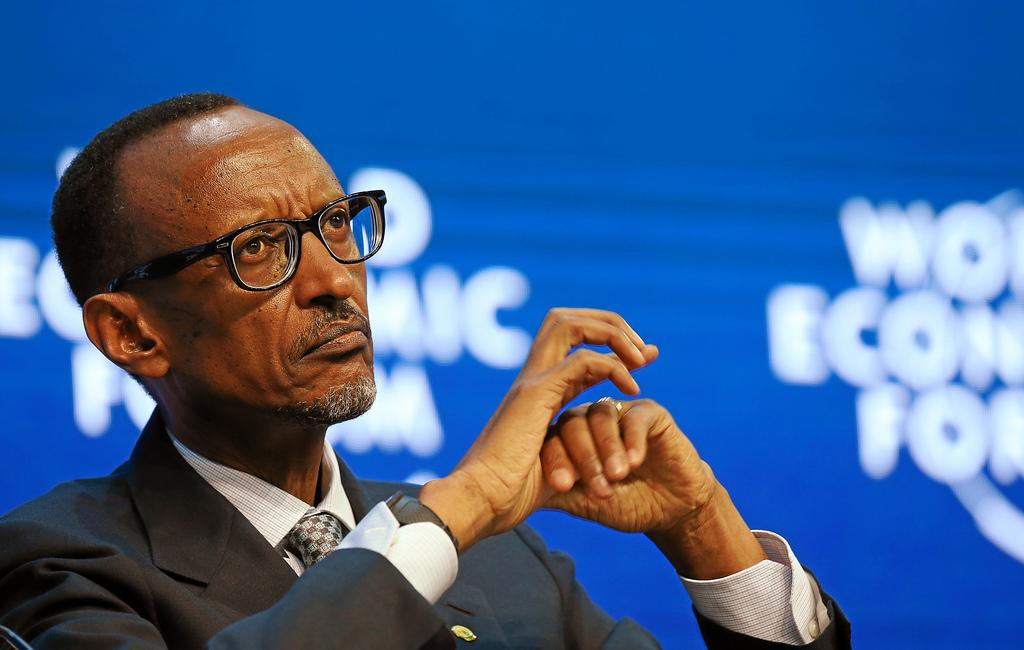As industry leaders gather at Africa Energy Week in Cape Town, the “Powering the Intelligence Era” discussion reveals how artificial intelligence is set to revolutionize the continent’s energy landscape
Cape Town, South Africa — Against the backdrop of Table Mountain and the Atlantic Ocean, Africa Energy Week has become the epicenter of a critical conversation about the continent’s energy future. This year’s conference theme, “Powering the Intelligence Era,” reflects a growing recognition that artificial intelligence is no longer a distant promise but an immediate imperative for Africa’s energy sector.
As delegates from across the continent converge in Cape Town’s state-of-the-art conference facilities, the discussions reveal a sector at an inflection point—ready to harness AI’s transformative power to address Africa’s most pressing energy challenges.
The Urgency of Now
“We’re not talking about the future anymore. AI is here, and Africa needs to move quickly,” emphasized a senior executive from a major Nigerian oil company during one of the week’s keynote sessions. The sentiment captures the mood at this year’s gathering, where urgency has replaced cautious optimism.
Africa’s energy sector faces a daunting reality. With over 600 million people lacking access to electricity and a population projected to reach 2.5 billion by 2050, traditional approaches are proving insufficient. Yet the continent holds 8% of global proven oil reserves and 7% of natural gas reserves, alongside vast untapped renewable energy potential.
The question dominating discussions in Cape Town is clear: How can artificial intelligence help Africa unlock its energy wealth while ensuring equitable access and sustainability?
Transforming Exploration and Production
In panel discussions throughout the week, oil and gas executives have shared compelling case studies of AI’s impact on exploration and production. Machine learning algorithms are now analyzing seismic data with unprecedented accuracy, identifying promising drilling sites while reducing the costs and risks that have historically plagued African exploration.
“In Angola’s offshore fields, we’re using AI-powered predictive analytics to anticipate equipment failures weeks before they occur,” explained a technical director from one of the country’s major operators. “This has reduced our unplanned downtime by 40% and saved millions of dollars annually.”
These predictive maintenance systems, analyzing real-time sensor data from drilling equipment, pipelines, and refineries, represent a quantum leap in operational efficiency. For Africa’s oil and gas industry—where downtime costs billions and infrastructure maintenance has been a persistent challenge—this technology is proving transformative.
Smart Grids and the Renewable Revolution
Perhaps no topic has generated more excitement at Africa Energy Week than AI’s role in accelerating the continent’s renewable energy transition. South Africa, the host nation grappling with its own energy crisis, serves as a powerful backdrop for these discussions.
Delegates have heard how AI-powered smart grids are helping utilities across the continent reduce transmission losses—a critical issue in countries where losses can exceed 20%, more than double the global average. By monitoring grid performance in real-time and automatically rerouting power, these intelligent systems are minimizing waste and improving reliability.
“Kenya’s renewable energy ambitions, our goal of 100% clean energy by 2030, would be impossible without AI managing the complexity of intermittent solar and wind power,” noted a representative from Kenya’s energy sector during a renewable energy forum. “Machine learning models now predict our generation patterns with 95% accuracy, allowing us to balance the grid effectively.”
In exhibition halls buzzing with activity, technology providers are showcasing AI-powered microgrid solutions specifically designed for rural Africa. These systems manage distributed energy resources—solar panels, batteries, backup generators—optimizing energy distribution for communities far from traditional infrastructure. Several East African countries are scaling pilot projects that demonstrate how AI can make off-grid renewable energy economically viable.
Homegrown Innovation Takes Center Stage
One of the week’s most compelling narratives has been the emergence of African AI innovators. In contrast to previous years when the conference was dominated by international technology providers, this year’s “Powering the Intelligence Era” sessions have highlighted numerous African startups and companies developing AI solutions tailored to the continent’s unique challenges.
Nigerian technology firms are demonstrating platforms that optimize diesel generator usage—a critical application in a country where backup generation remains essential. South African developers are showcasing AI systems that manage the complexity of pay-as-you-go solar installations, understanding local payment patterns and consumer behavior in ways that imported technologies often miss.
“The most exciting development is that Africans are building these solutions,” observed an investor from a Cape Town-based venture capital firm. “These aren’t Western technologies being imposed on African problems. These are African engineers who understand intermittent power supply, diverse payment systems, and infrastructure limitations, creating AI that actually works in our context.”
Confronting the Challenges
Yet the optimism in Cape Town is tempered by frank acknowledgment of significant obstacles. Throughout the week, speakers have emphasized that AI adoption requires substantial digital infrastructure, reliable connectivity, and access to high-quality data—resources that remain limited across much of the continent.
The talent gap has emerged as a recurring theme in workshop sessions. Africa faces a severe shortage of AI specialists and data scientists, and delegates have called for urgent investment in education and training initiatives. Several universities and technical institutions have announced new AI and data science programs during the conference, responding to industry demand.
“We need to train thousands of African AI engineers, not hundreds,” argued an education minister from West Africa during a workforce development panel. “Otherwise, we’ll be dependent on external expertise indefinitely.”
Investment challenges have also dominated discussions. While AI promises long-term cost savings, initial implementation requires capital that many African energy companies—particularly state-owned enterprises facing budget constraints—struggle to mobilize. Multiple sessions have focused on innovative financing mechanisms, including development finance, public-private partnerships, and regional investment funds.
Cybersecurity concerns loom large as well. As energy systems become more connected and AI-dependent, they become potential targets for cyberattacks. Delegates have called for robust frameworks to protect critical energy infrastructure, with several African nations announcing new cybersecurity initiatives during the week.
Regional Collaboration: The Way Forward
A consensus has emerged at Africa Energy Week that regional collaboration will be essential to AI’s successful deployment. During a high-level ministerial roundtable, energy ministers from across the continent committed to sharing data, best practices, and AI models across borders.
“Energy doesn’t respect national boundaries, and neither should our AI solutions,” declared a senior African Union official. “What works in managing solar microgrids in Tanzania can inform projects in Senegal. What Nigeria learns about optimizing gas production can benefit Algeria and Mozambique.”
The conference has seen the announcement of several new regional initiatives, including an African Energy AI Consortium that will facilitate collaboration among governments, companies, and research institutions. Regional economic communities are also establishing working groups to harmonize regulations and standards for AI deployment in energy systems.
Investment Commitments and Partnerships
Throughout the week, major announcements have underscored the sector’s commitment to the intelligence era. International development finance institutions have pledged hundreds of millions of dollars for AI-enabled energy projects. Several African governments have announced national AI strategies with dedicated funding for energy sector applications.
Technology partnerships between African energy companies and global AI providers have been formalized, but with a notable emphasis on technology transfer and capacity building rather than simple vendor relationships. “We’re not just buying technology; we’re building capabilities,” explained a CEO from an East African utility during a partnership announcement.
The Cape Town Declaration
As Africa Energy Week draws to a close, industry leaders are expected to endorse a “Cape Town Declaration on AI and Energy”—a framework for responsible, equitable AI deployment that prioritizes energy access, job creation, and sustainable development. The declaration emphasizes African ownership of the AI transformation, calling for policies that ensure technology serves the continent’s long-term interests rather than simply replicating Western models.
“This is Africa’s moment,” proclaimed the conference chair during opening remarks that have set the tone for the week. “We have the opportunity to leapfrog outdated infrastructure and build 21st-century energy systems. AI is the tool, but our vision, our innovation, and our leadership will determine the outcome.”
Looking Beyond Cape Town
As delegates prepare to return home from South Africa’s legislative capital, the mood is one of determined optimism. The discussions at Africa Energy Week have transformed abstract possibilities into concrete action plans. Countries are leaving with AI strategies, companies with implementation roadmaps, and investors with portfolio targets.
The transformation of Africa’s energy sector through artificial intelligence will not happen overnight. The challenges—infrastructure gaps, talent shortages, investment needs—remain formidable. But the conversations in Cape Town have demonstrated that Africa’s energy leaders understand both the stakes and the opportunities.
For the continent’s oil and gas sector, AI offers a path to remain competitive in a rapidly changing global market while maximizing value from existing reserves. For renewable energy ambitions, it provides the intelligence needed to manage complex, distributed power systems and achieve ambitious clean energy targets.
Most importantly, AI represents the potential to bring reliable, affordable energy to the hundreds of millions of Africans who still live in darkness—transforming lives, powering economies, and unlocking the continent’s full potential.
As the sun sets over Cape Town’s waterfront and Africa Energy Week concludes, one thing is clear: the intelligence era is not coming to Africa’s energy sector—it has arrived. The question now is not whether AI will transform African energy, but whether that transformation will be swift, equitable, and led by Africans themselves.
The discussions at this week’s conference suggest the answer may well be yes.
Reporting from Africa Energy Week in Cape Town, South Africa, where industry leaders, policymakers, and innovators are charting the course for AI-powered transformation of the continent’s energy sector.




